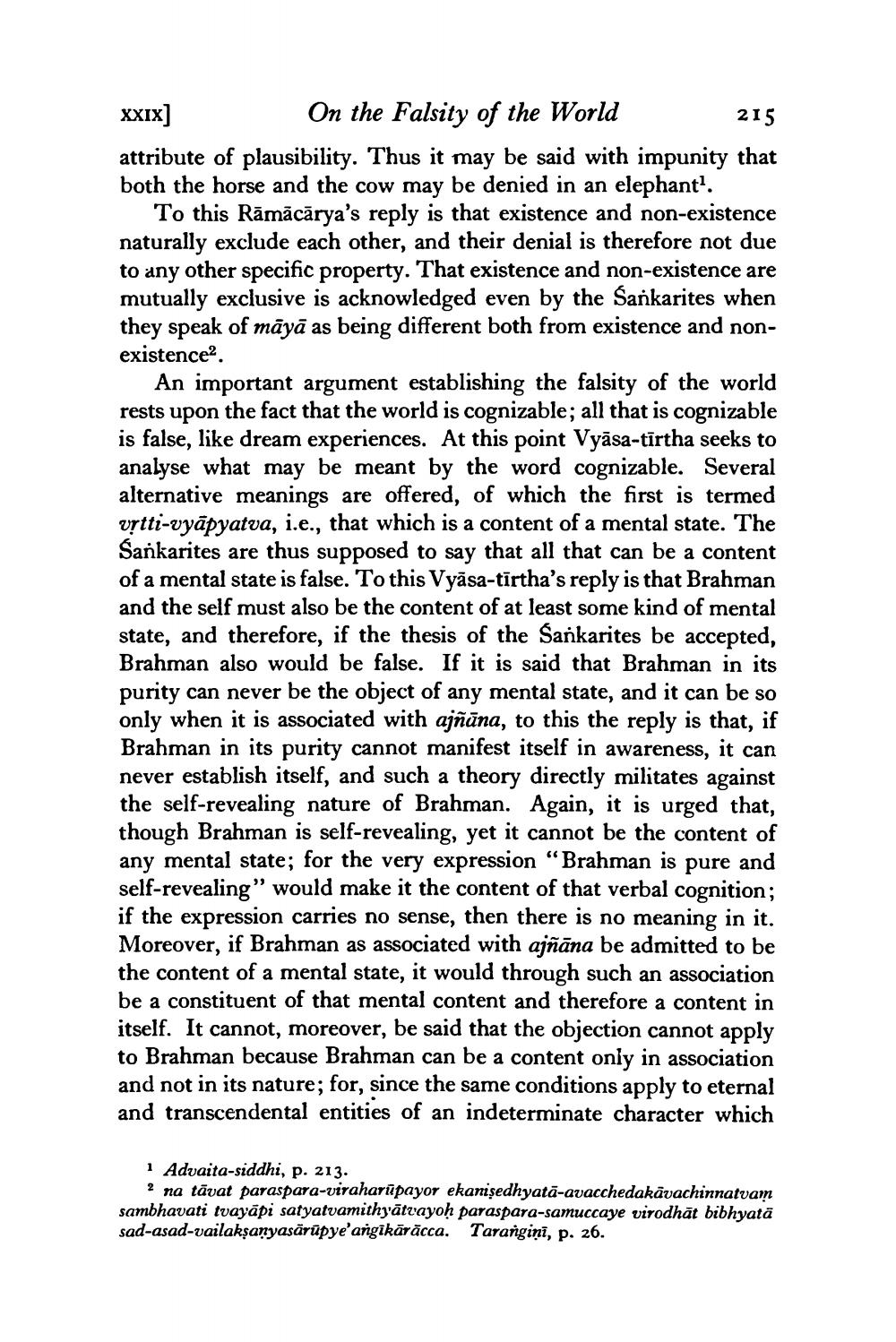________________
XXIX] On the Falsity of the World
215 attribute of plausibility. Thus it may be said with impunity that both the horse and the cow may be denied in an elephant.
To this Rāmācārya's reply is that existence and non-existence naturally exclude each other, and their denial is therefore not due to any other specific property. That existence and non-existence are mutually exclusive is acknowledged even by the Sankarites when they speak of māyā as being different both from existence and nonexistence.
An important argument establishing the falsity of the world rests upon the fact that the world is cognizable; all that is cognizable is false, like dream experiences. At this point Vyāsa-tīrtha seeks to analyse what may be meant by the word cognizable. Several alternative meanings are offered, of which the first is termed vrtti-vyāpyatva, i.e., that which is a content of a mental state. The Sankarites are thus supposed to say that all that can be a content of a mental state is false. To this Vyāsa-tirtha's reply is that Brahman and the self must also be the content of at least some kind of mental state, and therefore, if the thesis of the Sankarites be accepted, Brahman also would be false. If it is said that Brahman in its purity can never be the object of any mental state, and it can be so only when it is associated with ajñāna, to this the reply is that, if Brahman in its purity cannot manifest itself in awareness, it can never establish itself, and such a theory directly militates against the self-revealing nature of Brahman. Again, it is urged that, though Brahman is self-revealing, yet it cannot be the content of any mental state; for the very expression “Brahman is pure and self-revealing” would make it the content of that verbal cognition; if the expression carries no sense, then there is no meaning in it. Moreover, if Brahman as associated with ajñāna be admitted to be the content of a mental state, it would through such an association be a constituent of that mental content and therefore a content in itself. It cannot, moreover, be said that the objection cannot apply to Brahman because Brahman can be a content only in association and not in its nature; for, since the same conditions apply to eternal and transcendental entities of an indeterminate character which
1 Advaita-siddhi, p. 213.
2 na tävat paraspara-viraharūpayor ekanişedhyatā-avacchedakāvachinnatvam sambhavati tvayāpi satyatvamithyātvayoh paraspara-samuccaye virodhāt bibhyatā sad-asad-vailaksanyasārūpye'angikārācca. Tarangini, p. 26.




